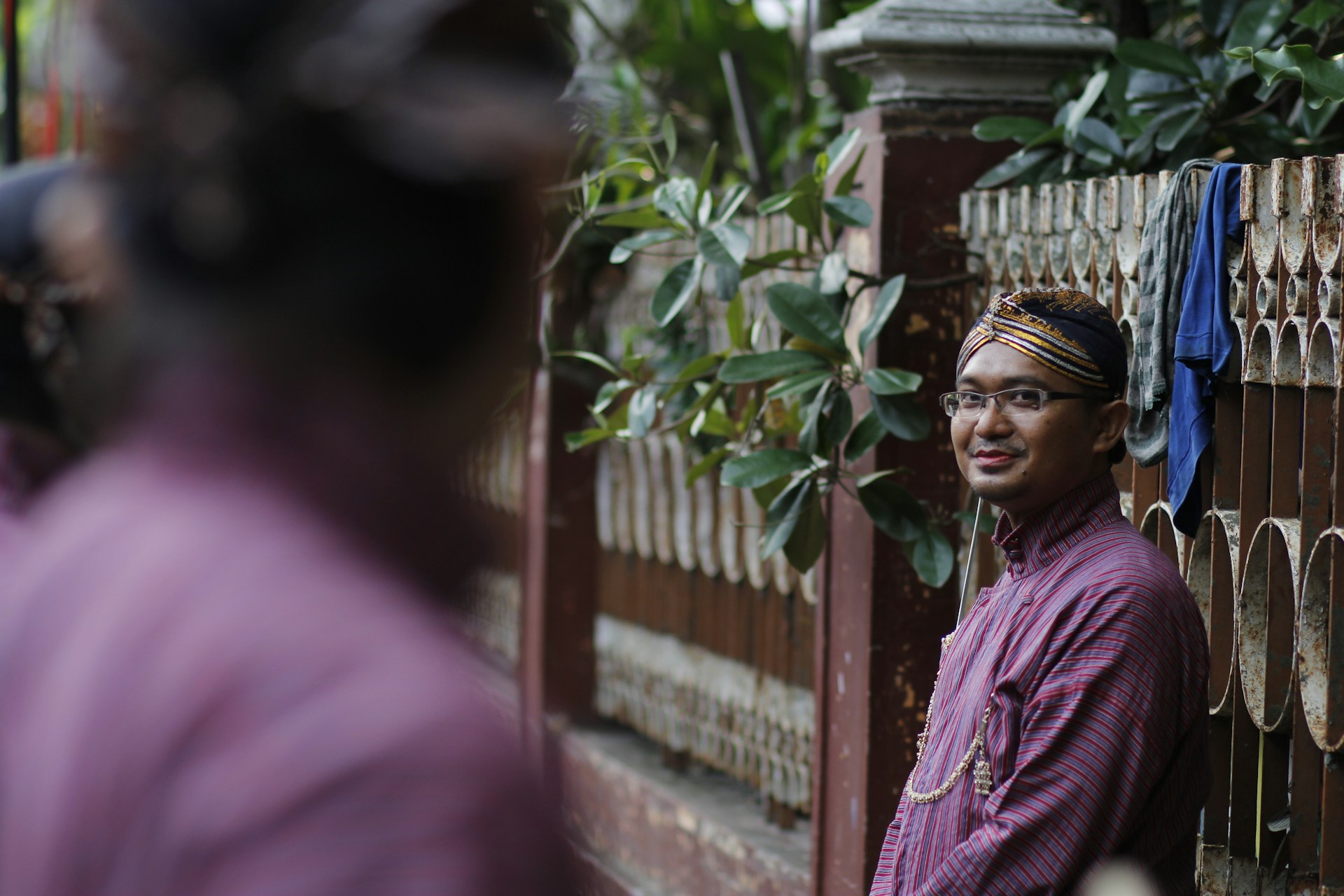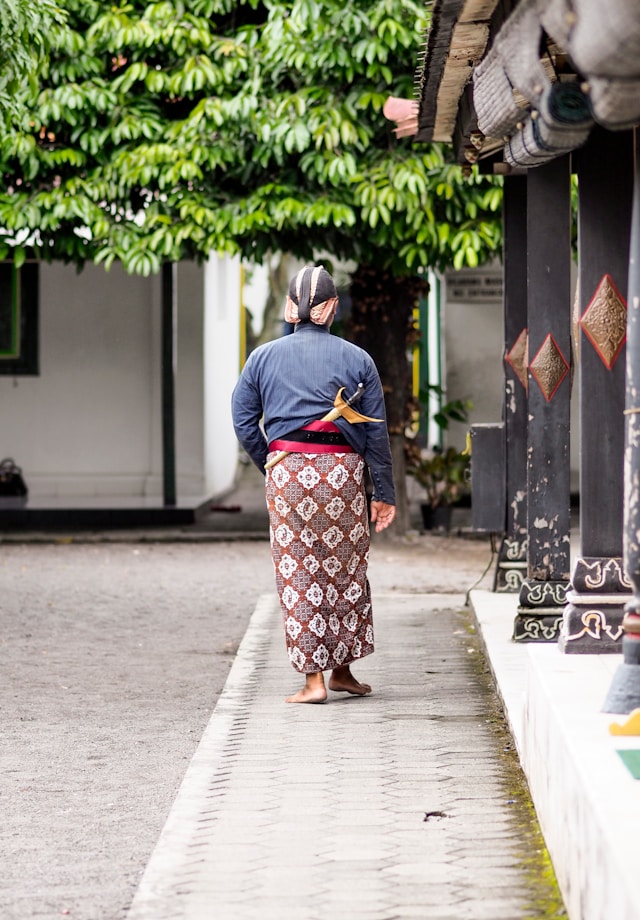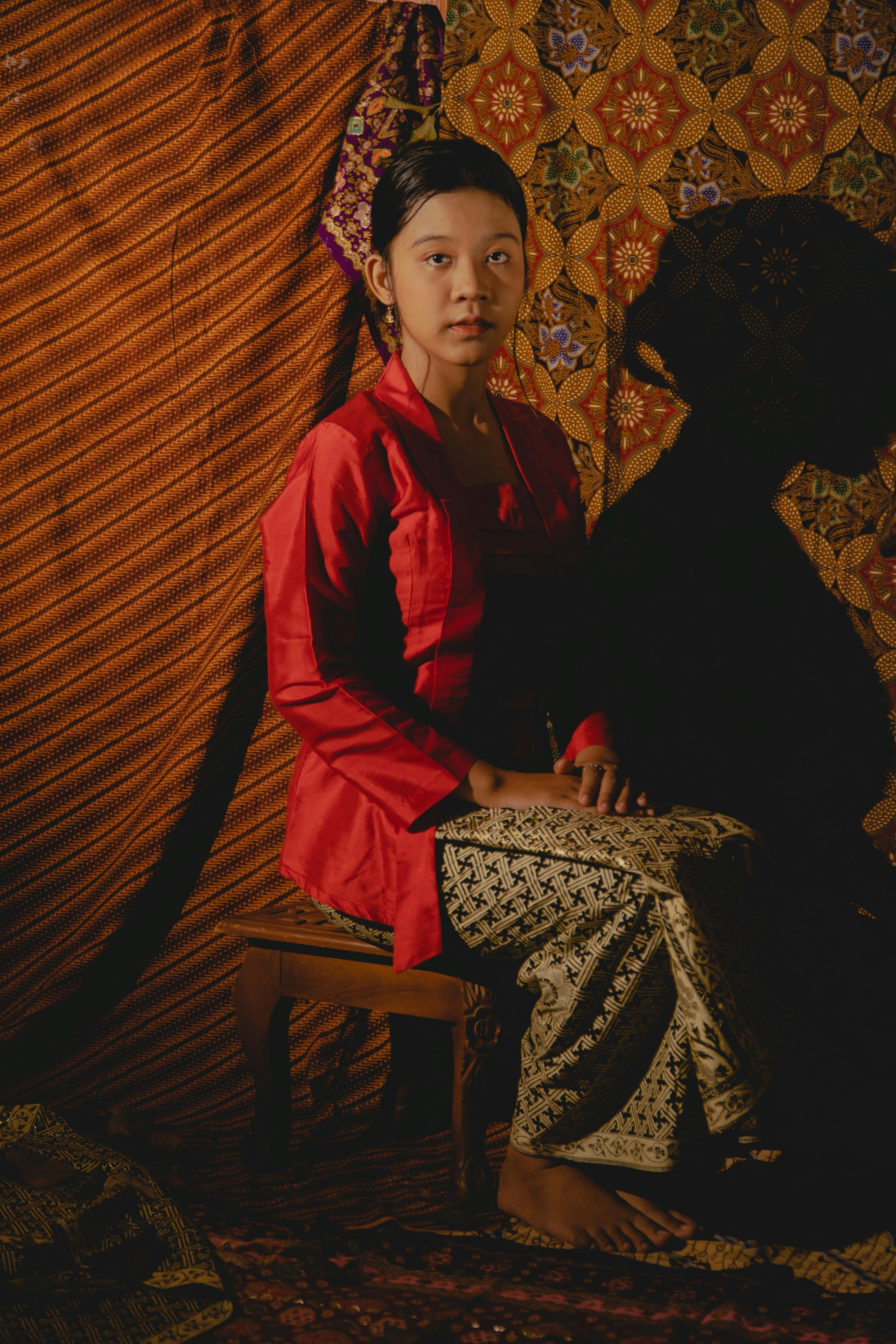In the traditions and beliefs of the Javanese people,
weton or the day of someone's birth is believed to influence their character, fate, and life fortune. One of the weton considered special is weton tulang wangi. This article will discuss in depth
the meaning of weton tulang wangi according to Javanese primbon, its characteristics, and various aspects related to this belief.
1. Understanding Weton Tulang Wangi

Old book illustration of primbon (credit: unsplash)
Weton tulang wangi is a term in Javanese culture that refers to the combination of a person's birth date and a specific market day, believed to possess spiritual significance. The term "tulang wangi" comes from the word "tulang" which means skeleton and "wangi" which means fragrant or sweet-smelling.
In the context of weton, tulang wangi refers to the strong and attractive spiritual energy or aura that a person possesses. People with weton tulang wangi are believed to have a special charm, both towards other humans and spiritual beings. They are considered more sensitive to supernatural matters and have great spiritual potential.
The belief in weton tulang wangi is part of the traditional Javanese calendar and divination system that has existed for centuries. Although it lacks scientific basis, this concept is still held by some members of Javanese society as part of cultural heritage and local wisdom.
2. List of Weton Tulang Wangi
Based on Javanese primbon, there are 11 combinations of days and market days that fall into the category of weton tulang wangi. Here is the complete list:
- Monday Kliwon
- Monday Wage
- Monday Pahing
- Tuesday Legi
- Wednesday Pahing
- Wednesday Kliwon
- Thursday Wage
- Saturday Wage
- Saturday Legi
- Sunday Pon
- Sunday Kliwon
Each of these weton combinations is believed to have its own characteristics and special qualities. However, in general, people born on these days are thought to possess strong spiritual potential and sensitivity to supernatural matters.
3. Characteristics of Weton Tulang Wangi

A man dressed in Javanese traditional attire (credit: unsplash)
Although there is no scientific evidence to support it, in Javanese belief, people with the weton of fragrant bones are believed to possess certain distinctive traits. Here are some characteristics that are often associated with the owners of the fragrant bone weton:
1. High Spiritual Sensitivity
One of the main traits often linked to the fragrant bone weton is high spiritual sensitivity. People with this weton are believed to have the ability to sense subtle energies around them. They may be more attuned to the "vibrations" or "atmosphere" of a place or situation.
This spiritual sensitivity can also manifest in the form of strong intuition. Owners of the fragrant bone weton are often considered to have sharp premonitions and can sense things that will happen before they actually do. They may find it easier to understand the feelings and motivations of others, as well as possess high empathy.
2. Strong Personal Attraction
Another trait often associated with the fragrant bone weton is a strong personal attraction. People with this weton are believed to possess a natural charisma that makes them easily draw the attention of others. They may have a captivating aura that makes others feel comfortable being around them.
This attraction is not always related to physical appearance, but rather to the positive energy that radiates from within them. This makes the owners of the fragrant bone weton often the center of attention in various social situations. They may have a natural ability to influence and lead others.
3. Ability to See or Sense Supernatural Things
In traditional beliefs, the owners of the fragrant bone weton are believed to have the ability to see or sense the presence of supernatural beings. They may be more sensitive to supernatural energies and can feel the presence of invisible entities.
This ability can manifest in various forms, ranging from seeing apparitions to merely sensing the "presence" of something that cannot be explained. Some people with the fragrant bone weton may experience vivid dreams or have intense spiritual experiences.
4. Meaningful Dreams
People with the fragrant bone weton are often associated with more vivid and meaningful dream experiences. They may frequently have dreams that are considered signs or messages from the subconscious. In some cases, these dreams are even seen as a form of communication with the spiritual world or ancestors.
Owners of the fragrant bone weton may find it easier to remember their dreams and can interpret the meanings behind them. They may use these dreams as guidance in making decisions or understanding situations in their lives.
5. Luck in Various Aspects of Life
The fragrant bone weton is also often associated with luck in various aspects of life. People with this weton are believed to have smooth "rezeki" and often experience ease in navigating life. This luck can manifest in various forms, such as ease in finding a job, smoothness in business, or even protection from danger.
However, it is important to remember that luck must still be balanced with effort and hard work. Belief in weton should not be an excuse to be passive or to rely solely on fate.
4. Advantages of Weton Tulang Wangi
In Javanese belief, weton tulang wangi is considered to have several advantages or special qualities. Although there is no scientific basis to support this, here are some advantages that are often associated with the owners of weton tulang wangi:
1. Strong Leadership Spirit
One of the advantages often linked to weton tulang wangi is a strong leadership spirit. People with this weton are believed to have charisma and a natural ability to lead and influence others. This leadership spirit may be evident in their ability to organize, direct, and inspire those around them.
Owners of weton tulang wangi often become respected figures and are followed in various social situations. They may have a clear vision and the ability to motivate others to achieve common goals. This advantage makes them suitable for leadership positions in various areas of life.
2. High Creativity and Artistic Talent
The Weton of fragrant bones is also associated with a high level of creativity and artistic talent. People with this Weton are believed to possess a strong imagination and the ability to express themselves through various forms of art. This creativity can manifest in various fields, such as music, visual arts, literature, or even in everyday problem-solving.
Owners of the fragrant bones Weton may have a unique and innovative way of thinking. They might find creative solutions to various challenges more easily and have the ability to see things from different perspectives. This advantage makes them excel in fields that require creativity and out-of-the-box thinking.
3. Good Adaptability
Another advantage often associated with the fragrant bones Weton is good adaptability. People with this Weton are believed to easily adjust to various new situations and environments. This adaptability may be seen in their speed of learning new things, flexibility in facing changes, and ability to remain calm in challenging situations.
Those born under the weton of fragrant bones may find it easier to socialize with various types of people and feel comfortable in different social settings. This advantage makes them excel in situations that require quick adaptability, such as jobs that frequently change or dynamic environments.
4. Intuition and Deep Wisdom
The weton of fragrant bones is often associated with strong intuition and deep wisdom. People with this weton are believed to have a profound understanding of life and the ability to see "beyond the surface" of a situation. This intuition and wisdom may be reflected in their ability to give advice, make sound decisions, and understand the motivations of others well.
Those born under the weton of fragrant bones may often be regarded as wise individuals who can be relied upon to provide deep perspectives on various issues. This advantage often leads them to be sought after for advice and guidance by those around them.
5. Natural Charm and Charisma
As previously mentioned, individuals with the weton of fragrant bones are believed to possess natural charm and charisma. This advantage makes them easy to like and respected by others. This charm is not only in romantic contexts but also in social interactions in general.
People with the weton tulang wangi may have the ability to make others feel comfortable and open when interacting with them. They may possess a positive "aura" that attracts others to be around them. This advantage can be very beneficial in various aspects of life, from personal relationships to professional careers.
5. Traditions and Beliefs Related to Weton Tulang Wangi

A man in traditional Javanese clothing (credit: unsplash)
In Javanese culture, there are several traditions and beliefs associated with weton tulang wangi. Although these practices may no longer be commonly performed in the modern era, they still form part of the Javanese cultural heritage. Here are some of those traditions and beliefs:
1. Protection Ritual
For the owners of weton tulang wangi, a special ritual is sometimes performed to provide spiritual protection. This ritual is usually conducted by elders or Javanese shamans, with the aim of strengthening the positive aura and protecting against negative energy. The protection ritual can involve chanting mantras, giving talismans, or bathing with flower water.
The purpose of this ritual is to strengthen the spiritual energy of the weton tulang wangi owner and protect them from disturbances by supernatural beings. Although this practice may be considered superstitious by some, for those who believe in it, this ritual is deemed important for maintaining spiritual balance.
2. Taboos on Certain Nights
In Javanese belief, owners of the "tulang wangi" weton are often advised to be cautious on certain nights, especially on Friday Kliwon or the first night of Suro. On these nights, they are advised not to leave the house or engage in risky activities.
This belief is based on the assumption that on certain nights, spiritual energy is stronger and supernatural beings are more active. Owners of the "tulang wangi" weton, due to their spiritual sensitivity, are considered more vulnerable to disturbances on these nights. Nevertheless, many modern people no longer strictly observe these taboos.
3. Partner Selection
In Javanese matchmaking tradition, the "tulang wangi" weton is sometimes a consideration in choosing a partner. Some believe that owners of the "tulang wangi" weton should pair with someone who also has a "strong" weton to complement each other and enhance positive energy.
However, there is also a belief that owners of the "tulang wangi" weton should not marry other owners of the same weton, as it is thought to cause a "clash" of strong energies. Nonetheless, in modern society, considerations of weton in partner selection are becoming increasingly rare, with more people choosing partners based on personal compatibility and shared values.
4. Role in Traditional Ceremonies
In several Javanese traditional ceremonies, the owner of the weton tulang wangi is sometimes given a special role. They may be asked to lead prayers, act as a "link" to the spiritual world, or even serve as a medium in certain rituals. This role is based on the belief that the owner of the weton tulang wangi has a stronger connection to the spiritual world and can help facilitate the ceremony.
Although this practice may no longer be common in many areas, in some Javanese communities that still uphold traditions, this special role is still given to the owner of the weton tulang wangi in certain traditional ceremonies.
5. Use of Charms or Sacred Objects
Some people believe that the owner of the weton tulang wangi should always carry certain charms or sacred objects to strengthen their positive energy and protect against negative energy. These objects can include agate stones, keris, or other heirlooms that are considered to have spiritual power.
The purpose of using these objects is to balance and direct the strong spiritual energy possessed by the owner of the weton tulang wangi. While this belief still exists, many modern individuals choose not to use charms or sacred objects and instead focus on spiritual self-development through more universal methods.
6. Myths and Facts Surrounding Weton Tulang Wangi
As time progresses, the belief in the fragrant bone weton has given rise to various myths. However, it is important to distinguish between myths and facts. Here are some myths and facts surrounding the fragrant bone weton:
Myths:
- Owners of the fragrant bone weton can always see ghosts or supernatural beings.
- People with the fragrant bone weton are sure to be wealthy and successful in life.
- The fragrant bone weton should not marry with a regular weton as it will bring bad luck.
- Owners of the fragrant bone weton must perform special rituals every full moon.
- Children with the fragrant bone weton must be given special names for protection.
Facts:
- The fragrant bone weton is part of Javanese traditional beliefs and has no scientific basis.
- Every individual has their own potential and uniqueness, regardless of their birth date.
- A person's success and achievements are more determined by effort, hard work, and other external factors.
- Belief in the fragrant bone weton varies among the Javanese community, and not everyone believes in it.
- In a modern context, many Javanese people no longer pay much attention to weton in their daily lives.
It is important to understand that belief in the fragrant bone weton is part of cultural heritage and should not be regarded as absolute truth. Every individual is free to believe or not believe in this concept, as long as it does not harm themselves or others.
7. The Influence of Weton Tulang Wangi in Modern Life

A woman in traditional Javanese clothing (credit: unsplash)
Although the belief in the fragrant bone weton is rooted in ancient Javanese tradition, its influence can still be felt in several aspects of modern life. Here are some ways in which the concept of fragrant bone weton still affects society today:
1.Cultural Identity
For some Javanese people, the fragrant bone weton remains a part of their cultural identity. Although not always strictly practiced, knowledge about weton and its meanings is still considered an important part of the cultural heritage that needs to be preserved. Some Javanese families still maintain the tradition of calculating their children's weton and using this information as part of their cultural identity.
2.Decision Making
In some cases, the belief in fragrant bone weton still influences decision making, especially in matters considered important such as marriage or starting a new business. Some people may still consider the compatibility of weton before making major decisions. Although this practice is becoming increasingly rare, especially among the younger generation and in urban areas, there are still some who consider it as one of the factors to take into account.
3. Astrology and Prediction Industry
The concept of weton tulang wangi has become part of the astrology and prediction industry in Indonesia. Many fortune tellers or numerologists use the concept of weton, including weton tulang wangi, as part of their analysis. Although it lacks scientific basis, weton-based prediction services are still popular among some segments of society, both as entertainment and as guidance in decision-making.
4. Tourism and Culture
Weton tulang wangi and related beliefs often become attractions in cultural tourism. Many tourists, both domestic and international, are interested in learning about the unique aspects of Javanese culture, including the concept of weton. Some areas in Java even develop tourist attractions or educational packages related to the calculation of weton and its meaning in Javanese culture.
5. Psychology and Self-Development
Some modern self-development practitioners have adapted the concept of weton tulang wangi into their approaches. They may use this concept as a tool to help clients understand themselves and their potential. Although this approach is not scientifically based, some people feel that understanding their weton can assist in the process of introspection and self-development.
8. How to Determine Weton Tulang Wangi
To determine whether someone has a weton tulang wangi, knowledge of the Javanese calendar system is required. Here are the steps to determine someone's weton:
- Identify the birth date in the Gregorian calendar (Monday-Sunday).
- Convert the Gregorian birth date into the Javanese calendar to find out the market day (Legi, Pahing, Pon, Wage, Kliwon).
- Combine the birth day with the market day to obtain the weton.
- Check if the weton is included in the list of 11 weton tulang wangi mentioned earlier.
To make this process easier, many online weton calculators or applications are available to help calculate someone's weton based on their Gregorian birth date. However, it is important to remember that using weton as a life guide should be done wisely and not be the sole reference for making important decisions.
9. Conclusion

A woman studying in front of a laptop (credit: pexels)
Weton tulang wangi is a unique concept in Javanese culture that still attracts attention to this day. Although it does not have a scientific basis, this belief has become an integral part of Javanese cultural heritage and influences various aspects of community life.
It is important to understand that the concept of weton tulang wangi, like many other traditional beliefs, should be viewed in its cultural context. It represents local wisdom and the worldview of the Javanese people regarding the world and life. In the modern era, we can appreciate the concept of weton tulang wangi as part of cultural richness while remaining critical and rational.
Regardless of the belief in weton, what matters most is how we lead a good life, develop our potential, and benefit others. Each individual has their own uniqueness and potential, and success in life is more determined by effort, hard work, and a positive attitude than by one's birth date alone.
By understanding the meaning of weton tulang wangi according to Javanese primbon, we can better appreciate Indonesia's cultural richness while still thinking critically and taking positive aspects that can be applied in modern life. Cultural heritage like this deserves to be preserved as part of national identity, but its application in everyday life must be adjusted to the context and values that prevail in society today.
Find other interesting reviews at kapanlagi.com. If not now, when?
(kpl/psp)
Disclaimer: This translation from Bahasa Indonesia to English has been generated by Artificial Intelligence.

















